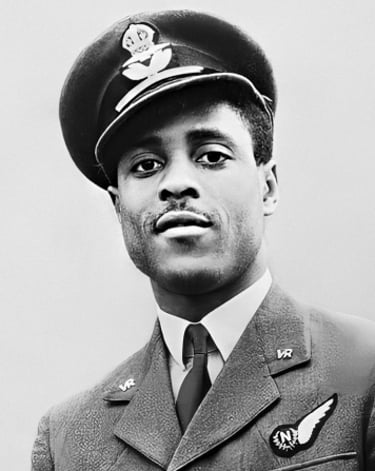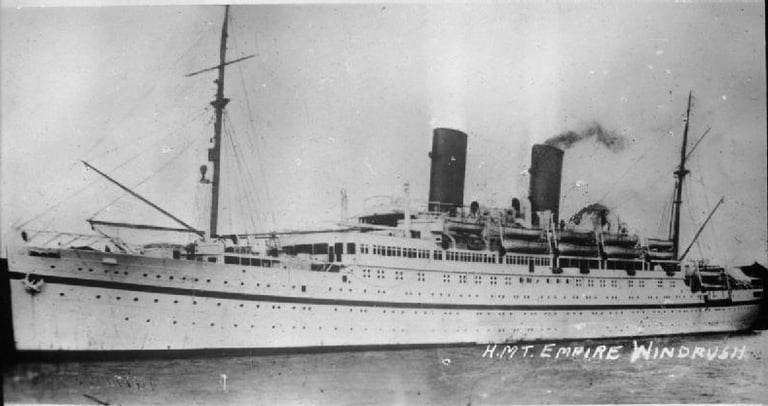

John Smythe - RAF Pilot and Barrister
John Henry Clavell Smythe was born on the 30th June 1915 in Freetown, Sierra Leone, he was the grandson of John H. Smythe, the American ambassador to Liberia. He was motivated to join the war effort after reading Adolf Hitler’s Mein Kampf (My Struggle). He envisioned devastation for Africans if Hitler’s Nazi’s prevailed.
Smythe was one of the first West Africans to travel to the UK and volunteered to serve with the Royal Air Force during the Second World War – the year was 1940. Out of ninety men only four completed basic training to become a navigator and serve with the bomber squadron– Smythe was one of the four. Smythe was sent out on missions, however disaster struck on his 28th mission -
Smythe’s special connection to Windrush
Smythe was the Officer in Charge of the Windrush voyage returning ex-military personnel to their respective Caribbean islands. When the Windrush reached Jamaica the Colonial Office was informed that if the men were to return there would be no jobs for them. The Colonial Office asked Smythe’s opinion, he recommended the ex service men return to the UK for retraining and employment opportunities. The Colonial Office agreed. At the time Smythe could not have been aware of the magnitude of his recommendation.
his plane was shot down. Injured he found refuge in a barn but was captured by German troops. Later he recalled the incident saying - “The Germans couldn’t believe their eyes. I’m sure that’s what saved me from being shot immediately. To see a black man–an officer at that–was more than they could come to terms with. They just stood their gazing.”
The Germans asked Smythe why a Black person was fighting for the RAF, as their war was with White people not Africans. Smythe replied that he was serving his King. Smythe was sent to a prisoner of war camp in Stalag Luft I camp in northern Germany once discharged from the hospital. For the first year he was the only Black person there. Smythe spent two years at the camp before being liberated by Russian troops in 1945.
After the war Smythe was promoted to war-substantive flight lieutenant in the Royal Air Force Volunteer Reserve. He was later seconded to the Colonial Office responsible for the welfare of ex African and Caribbean military personnel.
“The Germans couldn’t believe their eyes. I’m sure that’s what saved me from being shot immediately. To see a black man–an officer....


Smythe left the Royal Air Force in 1952, the same year he received an MBE for his service.
With no legal training Smythe successfully defended military personnel facing court martial. Impressed a judge gave Smythe a letter of recommendation and suggested he train as a lawyer. Smythe took the advice and trained as a barrister qualifying in 1951. Smyth returned to Freetown and was appointed Queen’s Counsel and later Attorney General. In 1961 Smythe became the Solicitor General of the newly independent Republic of Sierra Leone. After three decades of fulfilling his duty, he retired from public service in 1993 and moved to Britain with his family.
Johnny Smythe died on the 9th July 1996 in Oxfordshire.
Empire Windrush
